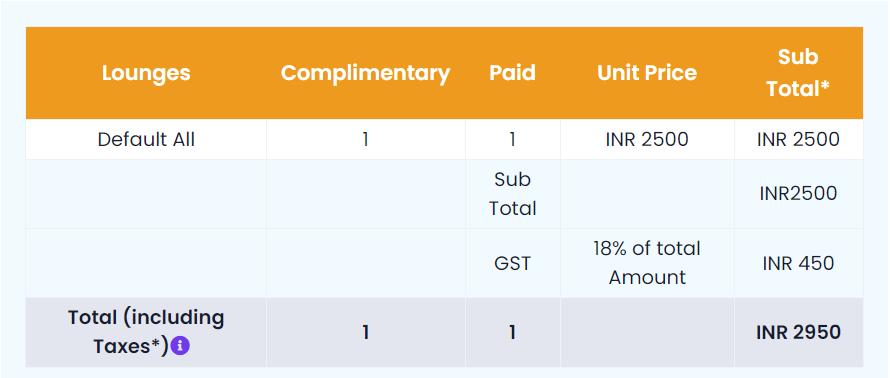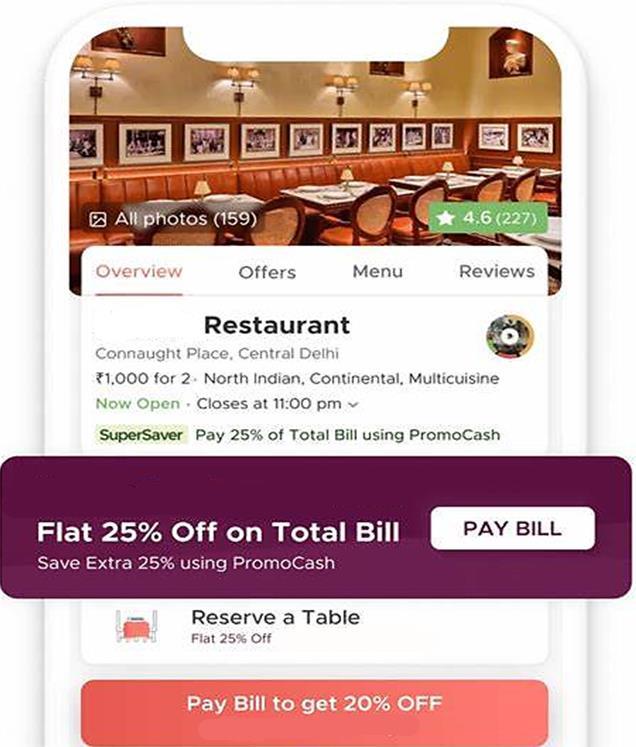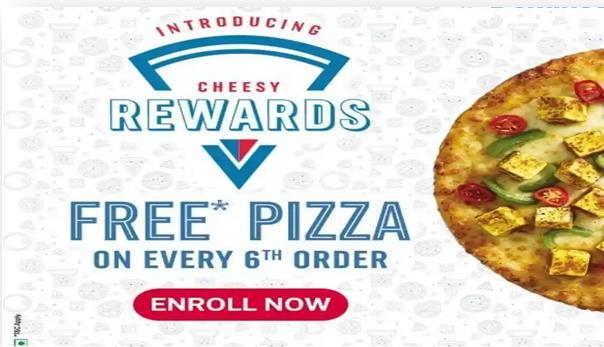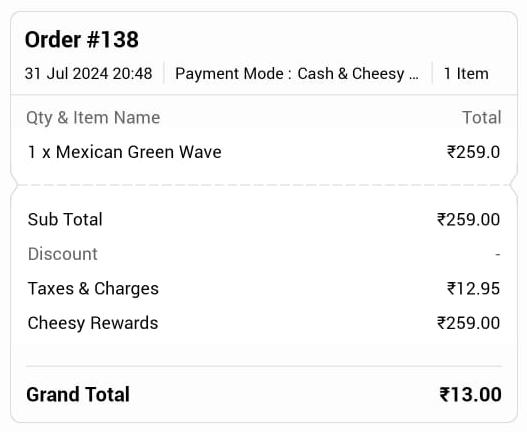




September 25, 2024
For information purposes only


In 2023, the direct contribution of tourism & hospitality industry to India's GDP was over 231 billion U.S. dollars

International tourist arrivals are expected to reach 30.5 million by 2028

“Atithi Devo Bhava”


Market size is estimated at USD 247.31 billion in 2024 and is expected to reach USD 475.37 billion by 2029
Source: India: tourism & hospitality direct impact to GDP 2034 | Statista
Source: https://www.ibef.org/industry/indian-tourism-and-hospitality-industry-analysis-presentation
Source: https://www.mordorintelligence.com/industry-reports/hospitality-industry-in-india
According to WTTC, over the next decade, India’s Travel & Tourism’s GDP is expected to grow at an average of 7.1% annually.


1. Hotel Sector
• Revenue streams
• Legislative framework –Journey so far
• Practical Issues
2. Food and Beverages (F&B) Sector
3. Co – living Sector

• Legislative framework –Journey so far
• Classification
• Practical Issues
• Relevant legal provisions
• Effect of the recent amendments and open issues
• Different operating models
• Practical Issues





Room tariff
Additional bed charges
Early check in charges
Late checkout charges




Dine-in at restaurant
In-room dining and minibar
Takeaway/ delivery of food
Outdoor catering
Sale of cocktail/ liquor

Spa and fitness center
Banquet hall/ Business center
Laundry services
Events such as new year eve, Christmas, Sunday brunch, etc.
Transport facilities



GST regime

26




• Service tax on room stay at 9% (abated)
• State luxury charge based on declared tariff



Based on actual transaction value


• Rate determination based on slabs of ‘declared tariffs’ of the room Based on actual transaction value • Upto 1000 – Exempt

ITC available under GST regime unlike pre- GST regime
July 2018- Significant relaxation to industry-change in mechanism of rate determination
Multiple changes in rates
Explained with illustration in ensuing slides







• Room Only

• Room
• Breakfast
• Room
• Breakfast + Lunch + Dinner
• Spa
• Pick and drop What will be the tax implication on such breakfast, lunch, dinner, spa, pick and drop services provided along with hotel accommodation?
Composite supply


• Room tariff is decided by Hotel sales team and communicated to ECO
• Tariff is inclusive of the GST amount
• GST rate to be charged in the below specific scenario where tariff is between INR 8400 to 8851


Short payment of tax - Whether GST is to be charged @18%?
Excess payment of tax - Whether GST is to be charged @12%?
Sales team should be sensitized on such pricing issues to avoid practical challenges



• Early check–in and Late check-out facility provided on payment of additional charges
• Late check-out charges are generally accounted for different room night in hotel’s accounting system
Whether the same has to be clubbed with the subsequent/ preceding day’s tariff?
Possible Views
Whether it is a composite supply?
I. Proportionately tax the said charges basis rates of Day 1 and Day 2 both
II. Tag the early check-in charges with the first day’s rate and late check-out with the last day
III. Apply the highest tax rate of that booking
IV. Standalone supply of time share usage rights – whether exempt before 18th July 2022?

Whether it qualifies as supply of time share usage rights by way of accommodation?
For determination of rate, whether the charges would increase the value of supply?
In case of multi-days booking liable to different GST rates, which rate shall be considered on these charges?


Where declared tariff fluctuates on daily or periodical basis, should the GST rate and availability of ITC also vary?

Notification 20/2019 Central tax (Rate) dated 30th September 2019
• Supply of ‘restaurant service’ other than at ‘specified premises’– GST @ 5% (Without ITC)
• Supply of ‘restaurant service’ at ‘specified premises’– GST @ 18% (With ITC)

‘Declared tariff’ means charges for all amenities provided in the unit of accommodation (given on rent for stay) like furniture, air conditioner, refrigerators or any other amenities, but without excluding any discount offered on the published charges for such unit.

‘Specified premises’means premises providing ‘hotel accommodation’ services having declared tariff of any unit of accommodation above INR 7500 per unit per day or equivalent.
Practical challenges in complying with Section 18(1) and Section 18(4), along with Rule 40 and Rule 44, concerning the availment and reversal of input tax credit when transitioning from exempt to taxable supplies, and vice versa, from taxable to exempt supplies


Scenario I – Advance (non-refundable) is paid and no show/ no prior intimation of cancellation
Scenario II – Prior intimation of cancellation – Cancellation fee is being charged (lumpsum or as a % of room tariff)
Circular No. 178/10/2022-GST

• Cancellation fee are the charges for the costs involved in making arrangements for the intended supply and the costs involved in cancellation of the supply
• Hence, should also be assessed at the same rate as applicable to the service contract
• Lemon Tree Hotel vs. Commissioner, Goods & Service Tax, Central Excise & Custom [2021] 127 taxmann.com 247 (New Delhi - CESTAT)
• EIH LTD. vs. COMMISSIONER OF CGST, MUMBAI, Service Tax Appeal No. 87687 of 2019, Order date 20-1-2023
• Taxability – whether these amounts will be liable to GST ?
• Classification – whether it is a hotel service (HSN 9963) or agreeing to tolerate the act (HSN 9997) or any other category ?
• Rate – what is the rate applicable ?










2. Food & Beverages (F&B) Sector

• Non-Ac restaurants – 12%
• AC restaurants – 18%
• Restaurants serving liquor – 18%
• Outdoor catering – 18%
- With ITC


• Restaurants – 5% (without ITC)
• Restaurants in hotel >7500 – 18% (with ITC)
• Outdoor catering – 18% (with ITC)

• Food supply to institutions under contract on regular basis – 5% (without ITC) – Explanation inserted
• Event based or occasional catering –18% (with ITC)


• Rationalization of tariff entries
• Restaurant and outdoor catering (in specified premises) - 18% with ITC
• Other than specified premises – 5% without ITC
‘Specified premises’means premises providing ‘hotel accommodation’ services having declared tariff of any unit of accommodation above INR 7500 per unit per day or equivalent.


Relevant law

Entry 6 (b) of Schedule II
Extract of the provision

6. Composite supply
The following composite supplies shall be treated as a supply of services, namely:-
a) ………; and
b) supply, by way of or as part of any service or in any other manner whatsoever, of goods, being food or any other article for human consumption or any drink (other than alcoholic liquor for human consumption), where such supply or service is for cash, deferred payment or other valuable consideration.

Definition of restaurant service as per Rate notification
‘Restaurant service’ means
• Supply of goods, being food or any other article for human consumption or any drink,
• by way of or as part of any service
• provided by a restaurant, eating joint including mess, canteen,
• whether for consumption on or away from the premises where such food or any other article for human consumption or drink is supplied.



Includes :
• Restaurant space and furniture
• Air-conditioning
• Well-trained waiters
• Linen, cutlery and crockery, music…

High Court of Madras (AnjapparChettinad A/C Restaurant v. Jt. CGST & CE, [2021] 127 taxmann.com 620 (Mad.)) in the case of Anjappar Chettinad A/C Restaurant

• “Restaurants provide a number of services normally in combination with the meal and/or beverage for a consolidated charge. These services relate to the use of restaurant space and furniture, airconditioning, well-trained waiters, linen, cutlery and crockery, music, live or otherwise, or a dance floor
• In the case of take-away or food parcels, the aforesaid attributes are conspicuous by their absence….. provision of food and drink to be taken-away in parcels by restaurants tantamount to the sale of food and drink and does not attract service tax under the Act.”


Includes :
• Supply of food
• Takeaway services
• Door delivery services
Circular No. 164 /20 /2021-GST dated 06th October, 2021

• The explanatory notes to the classification of service state that “restaurant service” includes services provided by Restaurants, Cafes and similar eating facilities including takeaway services, room services and door delivery of food.
• Takeaway services and door delivery services for consumption of food are also considered as restaurant service






• Whether that will be considered as supply of “goods” or supply of “services”?
• Whether the Tax treatment would differ in case : i. These items are consumed in premise of the restaurant ii. Take-away by customers
• Examples-
Advance Ruling in case of Kundan Misthan Bhandar, In re [2018] 100 taxmann.com 18 (AAR- UTTARAKHAND)].
Gujarat High Court judgement in case of HRPL Restaurants (P.) Ltd., In re, [2023] 148 taxmann.com 426 (AAR - GUJARAT)


a) Restaurant supplying biryani (5%) and cold-drink (28%+12%) b) Sweet shop selling namkeens, chocolates etc. through takeaway counter (Goods vs Service) ? Taxability – depends upon the intention of parties, nature of outlet and element of service involved



• Old issue in a new industry

Usage of Trademark





Supply of restaurant
• Whether Trademark is registered for a single state or for the company as a whole ?
• Given there is no concept of distinct person in The Trade Marks Act, whether the deeming fiction of GST Law can be applied?
































Who is liable to pay GST on packaging charges ?
• Restaurant owner
• E- commerce operator
Legal Extract:

Section 9 (5) of CGST Act : ………. all the provisions of this Act shall apply to such electronic commerce operator as if he is the supplier liable for paying the tax in relation to the supply of such services
Notification 17/2017 - Central tax (Rate)
Notified services inter alia include:
• supply of restaurant service other than the services supplied by restaurant, eating joints etc. located at specified premises




• Whether the service charges shall be taxable at State VAT (as levied on alcohol supply) or GST ?
• Whether it will be required to proportionate the service charges attributable to food and alcohol ?

Whether split invoicing model needs to be followed?
i. Alcohol invoice is issued separately – with applicable state VAT
ii. Food invoice is issued separately with service charges – applicable GST






Many eateries provide one free pizza after purchase on certain no. of pizzas.
Is GST applicable on one pizza which is provided free of cost ?

On purchase of every pizza 100 reward points is added to the customer’s account
Once customer orders 6 pizzas 600 reward points are accumulated into his account which makes him eligible to claim one free pizza.
Although no consideration is charged from the customer for the free pizza. However, whether GST still needs to be charged on redemption of loyalty points?







• Residential dwelling for use as a residence –exempt from GST
• Accommodation services <1000 per day by hotel, guest house, club or campsite- exempt from GST

• Accommodation services <7500 per day by hotel, guest house, club or campsite- GST @ 12 % 1
• Residential dwelling for use as a residence by registered person – GST liability under RCM


Taghar Vasudev Ambrish v. AAAR [2022] 135 taxmann.com 287 (Kar.)

Thai Mookambikaa Ladies Hostel V. UOI [2024] 160 taxmann.com 667 (Mad.)


• Residential dwelling for use as a residence by registered person – GST liability under RCM
• Accommodation services having value of supply upto INR 20,000 p.m. per person and supplied for a continuous period of 90 days is exempt from GST
• Accommodation services <7500 per day by hotel, guest house, club or campsite- GST @ 12 %

Held that hostels serve as long-term residences for students, classifying the stay as residential in nature. Consequently, such services fall under the category of residential dwellings and are exempt from GST
This ruling reaffirmed that hostel services offered to girl students and working women are classifiable as residential dwellings, making them exempt from GST under entry 12 of Notification No. 12/2017


Notification No. 04/2024 CTR
dated 12th July, 2024


A separate entry 12 A introduced in notification No. 12/2017- CTR 28.06.2017 under heading 9963 to exempt accommodation services having value of supply of accommodation up to Rs. 20,000/- per month per person subject to the condition that the accommodation service is supplied for a minimum continuous period of 90 days
Clear demarcation in entry 12 of the afore-mentioned notification to exclude accommodation services from the purview of renting of residential dwelling
While the High Court decisions in cases like Taghar VasudevAmbrish and Thai Mookambikaa Ladies Hostel have clarified that hostel accommodations used by students are exempt from GST, the amendment introduce a new layer of complexity

Where building owners have opted for the exemption, would they be required to discharge GST on the entire rent/deposit collected where tenants vacate the premises within 90 days of start of service?
Can the limit of 20,000/- per month be levied for each bed rented out, or is it for a room as a whole?
What would be the implications where one person takes 3 rooms on rent where individually the per room rent is under 20,000 per month, but in totality exceeds 20,000 per month?
Does the rate of 20,000 per month refer only to the rate for renting of bed or the all-inclusive price for renting of bed plus food and maintenance?
Where a supplier of accommodation services charges GST from the beginning of the rental period, but the tenant stays for a period exceeding 90 days, can the supplier avail the benefit of GST exemption post 90 days? Further, can the supplier claim a refund of the GST paid for the first 90 days?




leasing services

• View I – Owner provides residential dwelling services to the customers. Exempt ?
• View II – Owner is providing hostel accommodation services to customers. Exemption can be claimed under Entry 12A subject to its provisions


• Services provided by Platform shall be taxable at applicable rates
• Can the Platform be construed as an e-commerce operator and accordingly the TCS provisions u/s Section 52 of the CGST Act, arise?
• Renting Vs accommodation: Would the Owner be required to obtain a GST registration and discharge GST on the services provided to the customer where the rent charged per month per person is in excess of 20,000?

Leasing and sub leasing model

Prop Co.

Leases the property to Op co Provides coliving facility to the tenants Op Co.



Prop co to Op Co –
• If the Op Co. is a registered entity, then GST would be applicable under reverse charge mechanism and Op Co. would be required to pay GST
Op Co to customer -
• Accommodation services having value of supply upto INR 20,000 p.m. and supplied for a continuous period of 90 days is exempt from GST
• Therefore, the GST paid under RCM becomes a cost to Op Co.
• If the Op. Co. is an unregistered entity and is engaged in leasing of rooms below ₹20,000 p.m., is it required to obtain a GST registration solely for the purpose of payment of GST under reverse charge?
• If the Op Co. leases certain rooms for less than ₹20,000 p.m. per person and others exceeding this value, GST registration and RCM obligations arise in the hands of Op. Co.. Is there a way to mitigate this additional GST cost on rooms below ₹20,000 p.m?











https://taxmann.com/
